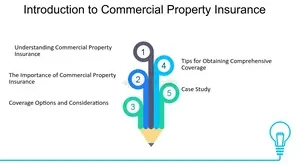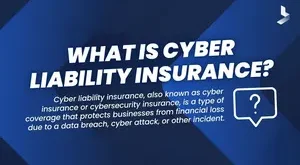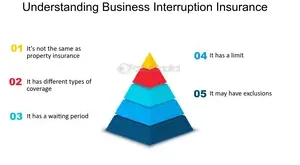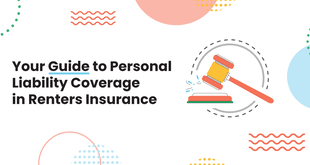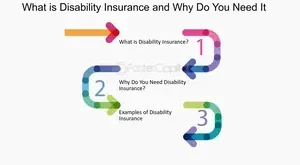Why Business Insurance is Essential
Financial Protection
Business insurance provides a safety net for your enterprise, covering financial losses resulting from various risks, such as property damage, lawsuits, employee injuries, and more. This protection ensures that a single adverse event doesn’t jeopardize your entire business.
Legal Requirements
Many types of business insurance are legally required, depending on your industry and location. For example, workers’ compensation insurance is mandatory in most states for businesses with employees. Compliance with these regulations helps avoid legal penalties and ensures you are prepared for potential risks.
Business Continuity
Insurance helps maintain business continuity by covering the costs of interruptions caused by events like natural disasters, fires, or other significant disruptions. With proper coverage, you can recover faster and minimize downtime, ensuring your business remains operational.
Peace of Mind
Knowing that your business is protected against a wide range of risks provides peace of mind. This allows you to focus on growth and operations without constantly worrying about potential financial setbacks.
Types of Business Insurance
General Liability Insurance
General liability insurance protects your business from claims of bodily injury, property damage, and personal injury (such as libel or slander) that occur on your business premises or as a result of your business operations. It covers legal fees, medical expenses, and settlements or judgments.
Property Insurance
Property insurance covers damage or loss of physical assets, including buildings, equipment, inventory, and furniture, due to events like fire, theft, vandalism, and natural disasters. It helps you repair or replace damaged property and continue operations with minimal disruption.
Workers’ Compensation Insurance
Workers’ compensation insurance provides benefits to employees who suffer work-related injuries or illnesses. It covers medical expenses, rehabilitation costs, and a portion of lost wages. This insurance is mandatory in most states and helps protect your business from lawsuits related to workplace injuries.
Business Interruption Insurance
Business interruption insurance, also known as business income insurance, covers the loss of income resulting from a covered event that disrupts your operations. It helps pay for ongoing expenses, such as rent and payroll, while your business recovers and resumes normal operations.
Professional Liability Insurance
Professional liability insurance, also known as errors and omissions (E&O) insurance, protects businesses that provide professional services or advice. It covers legal costs and damages arising from claims of negligence, errors, or omissions in the services provided.
Commercial Auto Insurance
Commercial auto insurance covers vehicles used for business purposes. It provides liability coverage for bodily injury and property damage caused by business vehicles, as well as physical damage coverage for the vehicles themselves.
Product Liability Insurance
Product liability insurance protects your business from claims related to the manufacture, sale, or distribution of products that cause injury or damage. It covers legal fees, settlements, and medical costs associated with defective products.
Cyber Liability Insurance
Cyber liability insurance protects your business from financial losses resulting from cyberattacks, data breaches, and other cyber incidents. It covers costs related to data recovery, legal fees, notification of affected parties, and public relations efforts to manage the impact on your reputation.
Choosing the Right Business Insurance Policy
Assess Your Risks
Identify the specific risks associated with your business operations, industry, and location. Consider potential hazards such as natural disasters, theft, liability claims, employee injuries, and cyber threats. Understanding your risks helps you determine the types and levels of coverage you need.
Compare Insurance Providers
Research different insurance providers and compare their offerings. Look for insurers with strong financial ratings, positive customer reviews, and experience in your industry. Comparing multiple quotes can help you find the best coverage at competitive rates.
Customize Your Coverage
Work with an insurance agent or broker to tailor your policy to your business’s unique needs. Customizing your coverage ensures you have adequate protection for all aspects of your operations without paying for unnecessary coverage.
Understand Policy Details
Read the policy documents carefully to understand the terms, conditions, and exclusions. Pay attention to coverage limits, deductibles, and any additional endorsements or riders. Understanding the specifics of your policy helps avoid surprises in the event of a claim.
Review and Update Regularly
Regularly review your insurance coverage to ensure it remains adequate as your business grows and evolves. Update your policy to reflect changes in your operations, such as new locations, equipment, or services. Regular reviews help maintain comprehensive protection and avoid gaps in coverage.
Common Business Insurance Myths
Myth 1: Small Businesses Don’t Need Insurance
Many small business owners believe they don’t need insurance because of their size. However, small businesses are often more vulnerable to financial setbacks from unexpected events. Business insurance is crucial for enterprises of all sizes to protect against significant risks.
Myth 2: Home-Based Businesses Are Covered by Homeowners Insurance
Homeowners insurance typically does not cover business-related activities. Home-based businesses need separate business insurance to protect against risks such as liability claims, property damage, and business interruptions.
Myth 3: General Liability Covers All Risks
While general liability insurance provides broad protection, it does not cover all risks. Additional policies, such as professional liability, cyber liability, and workers’ compensation, are necessary to ensure comprehensive coverage.
Conclusion
Business insurance is a vital investment for protecting your enterprise from a wide range of risks. By understanding the types of coverage available, assessing your specific needs, and carefully selecting the right policies, you can ensure your business is well-protected against potential financial setbacks. Regularly reviewing and updating your coverage helps maintain adequate protection as your business evolves, providing peace of mind and enabling you to focus on growth and success
 kisskh kisskh | Asian Dramas & Movies
kisskh kisskh | Asian Dramas & Movies


